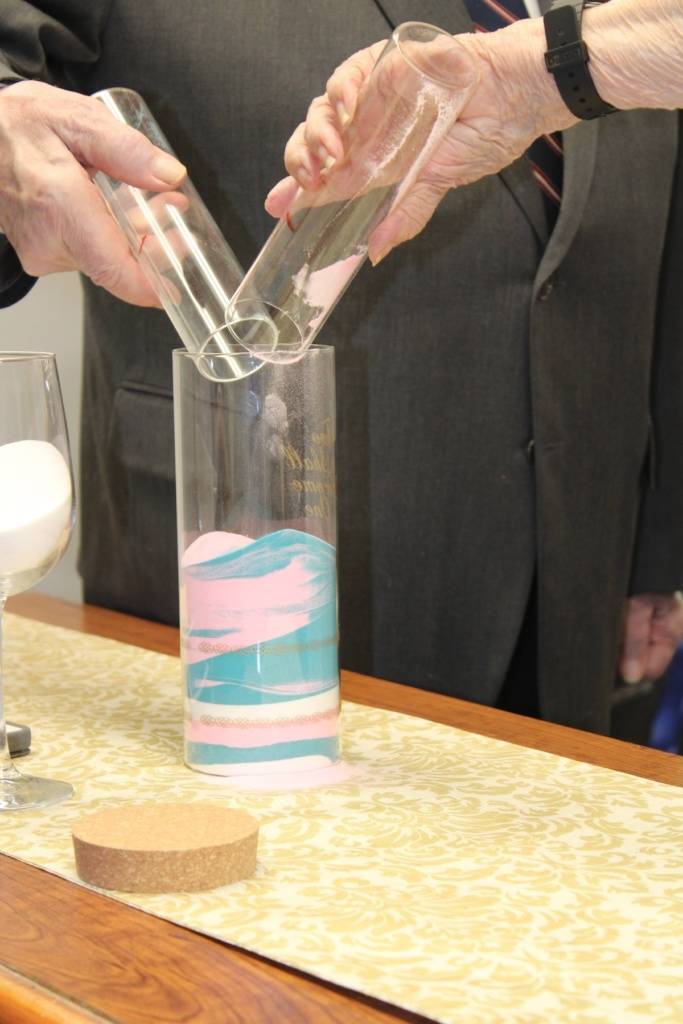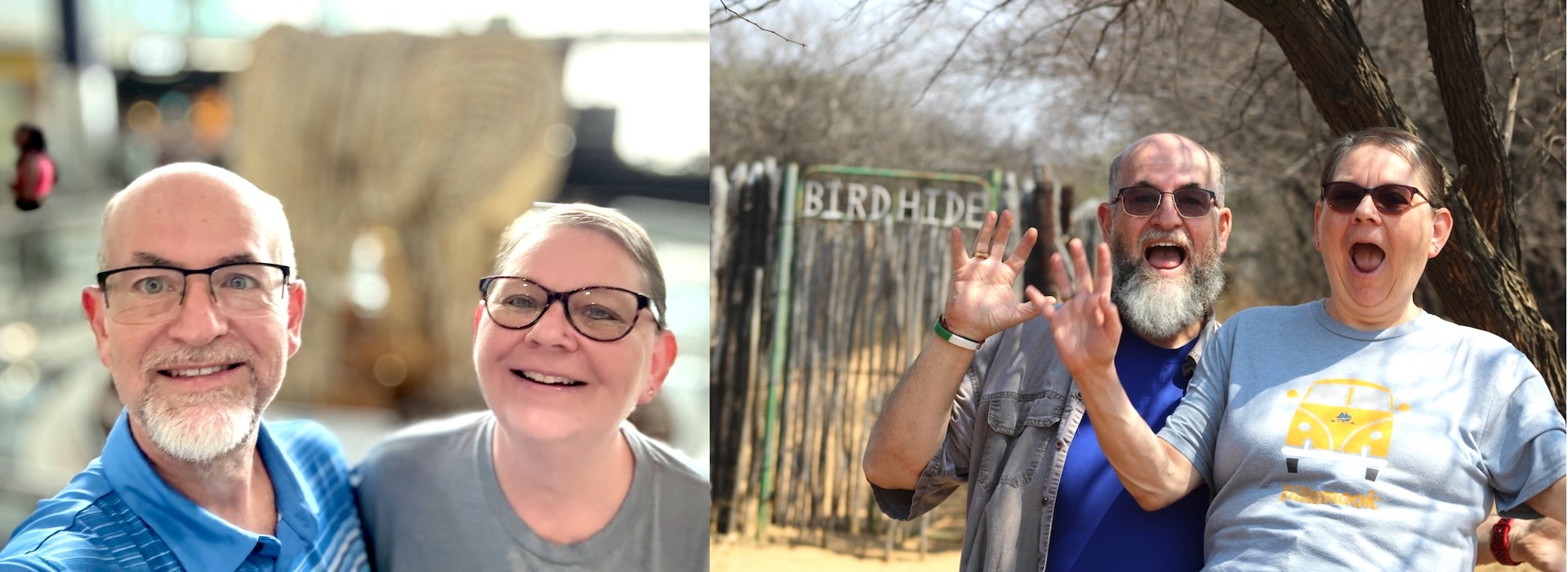From Compromise to Covenant: A Relationship Guide
In the heart of the Kalahari Desert, where the sun blazes hot and water is scarce, there exists a profound understanding of value. In Botswana’s villages, water is treasured because it sustains life. Nothing is wasted when something is truly precious. This cultural wisdom mirrors how God calls us to treat the sacred gift of relationships. In a world where connections are often treated as disposable and commitments are easily broken, God invites us to discover the refreshing waters of covenant love. Like an oasis in the desert, His design for relationships offers something our parched souls desperately need, a love that lasts, a commitment that endures, and a joy that deepens with time.
We live in a time of endless options and fleeting commitments. Our culture celebrates freedom without responsibility, connection without covenant, and pleasure without perseverance. We trade away God’s beautiful design for momentary comfort. We sacrifice lasting joy for fleeting pleasure. We exchange the richness of covenant for the emptiness of compromise. And like trading precious water for desert sand, we find ourselves spiritually parched, wondering why our relationships leave us unsatisfied and incomplete.
But God’s story, from Genesis to Revelation, calls us back to something better. Through the lives of real people who made real choices, God shows us the difference between relationships built on shifting sand and those anchored in His unchanging truth.
God Writes with Wisdom
The Bible doesn’t begin with a list of relationship rules. It begins with a love story. In the perfection of Eden, God creates Adam and places him in a garden filled with beauty. Adam has meaningful work, divine connection, and abundant resources. But something crucial is missing. “It is not good for the man to be alone,” God declares, and from Adam’s side, He creates Eve, not a duplicate, but a complement. Not a servant, but a partner. Not an afterthought, but an essential completion of humanity’s reflection of God’s image.
“Therefore a man shall leave his father and his mother and hold fast to his wife, and they shall become one flesh. And the man and his wife were both naked and were not ashamed.” ~~ Genesis 2:24-25 ESV
This passage reveals God’s blueprint for relationships. One man and one woman, leaving their families of origin, forming a new unit, becoming “one flesh” in a commitment that binds them together physically, emotionally, and spiritually. The nakedness mentioned isn’t just about having no clothes. It represents complete transparency and vulnerability, with nothing to hide and nothing to fear. This was God’s original plan, a relationship of complete trust, honor, and unity.
Two dear elderly friends invited us to a lead them in a powerful symbol of sacred union. Each held a jar of colored sand, representing their individual lives, distinct, full, and separate. They began by pouring white sand into a central jar, declaring God as the foundation of their lives. Then, they added their own sands in layers, honoring who they were before marriage. Another layer of white sand followed, God at the center of their union. Finally, they poured their remaining sands together, blending inseparably, symbolizing two becoming one. They ended with white sand once more, signifying God’s covering and everlasting love. It was more than symbolic, it was a living picture of Genesis 2:24. Marriage, by God’s design, is not just the joining of two hearts, but the creation of something entirely new, holy, and indivisible, a covenant crafted by divine hands and sustained by His grace.

But the perfection of Eden didn’t last. Sin entered the world through a simple act of disobedience, and with it came the first relationship breakdown. Adam and Eve had walked naked and unashamed before, now they sewed fig leaves to cover themselves. They had communed openly with God, now they hid among the trees. They had supported each other in trust, now they pointed fingers of blame. “The woman you gave me made me do it,” Adam told God, introducing the first marital betrayal into human history.
What followed was a long, slow drift away from God’s original design. As generations passed and cultures developed, humans created their own relationship patterns. Lamech took multiple wives and boasted of his violence in Genesis 4. The men of Noah’s day became so corrupt in their treatment of women that God sent a flood. By the time we reach Genesis 12, polytheism (the worship of many gods) had corrupted human understanding of divine love, and polygamy (many wives and concubines) had distorted human expression of marital love.
But through it all, God kept writing His story. He didn’t erase the broken chapters. He began redeeming them. He called Abraham out of idolatry into covenant. He promised to build a nation that would bless the world. He began to restore what sin had damaged, one relationship at a time.
God Speaks with Truth
Few biblical characters illustrate the danger of relationship compromise more clearly than Abraham, the father of faith. God called him into covenant, promising to make him the father of many nations. But when the child of promise didn’t arrive on Abraham’s timetable, he and Sarah took matters into their own hands.
“So, after Abram had lived ten years in the land of Canaan, Sarai, Abram’s wife, took Hagar the Egyptian, her servant, and gave her to Abram her husband as a wife. And he went in to Hagar, and she conceived. And when she saw that she had conceived, she looked with contempt on her mistress.” ~~ Genesis 16:3-4 ESV
What seemed like a practical solution created painful problems. Hagar despised Sarah. Sarah mistreated Hagar. Abraham was caught in the middle of female rivalry. And Ishmael, the son born through this arrangement, grew up in a home fractured by jealousy. One moment of compromise, culturally acceptable but spiritually compromised, created conflict that persists to this day between descendants of Ishmael and Isaac.
The pattern continued with Jacob, who wanted to marry Rachel but was tricked into marrying her sister Leah first. Eventually, he took both as wives, plus their servants Bilhah and Zilpah. The result? A household divided by competition and comparison. The twelve sons born to these four women grew up in an environment of favoritism and dysfunction. The brothers’ jealousy of Joseph, Rachel’s son, ultimately led to his being sold into slavery.
“Now Israel loved Joseph more than any other of his sons, because he was the son of his old age. And he made him a robe of many colors. But when his brothers saw that their father loved him more than all his brothers, they hated him and could not speak peacefully to him.” ~~ Genesis 37:3-4 ESV
King David carried relationship compromise to new levels. Despite being “a man after God’s own heart,” David collected wives and concubines as symbols of royal power. But his greatest fall came when he saw Bathsheba bathing on a rooftop and decided to take her, despite knowing she was another man’s wife. This act of adultery led to a cascade of sins: deception, murder, family breakdown, and national division.
Though God forgave David
when he repented,
the consequences were
severe and lasting.
David’s son Solomon took relationship compromise to an unprecedented level. Despite his legendary wisdom, he amassed seven hundred wives and three hundred concubines, many from foreign nations that worshipped idols. What began as political strategy ended in spiritual catastrophe. These women turned Solomon’s heart away from God, and after his death, the kingdom split in two, never to be fully restored.
“For when Solomon was old his wives turned away his heart after other gods, and his heart was not wholly true to the Lord his God, as was the heart of David his father.” ~~ 1 Kings 11:4 ESV
These biblical warnings aren’t just ancient history. They speak directly to our modern relationship confusion. When we compromise God’s design, whether through polygamy, adultery, casual sex, or same-sex relationships, we don’t just break rules. We break hearts. We damage trust. We fracture homes. We create ripple effects that spread through generations. And most significantly, we distort the image of God that our relationships were meant to reflect.
God isn’t trying to restrict our freedom with these warnings. He’s trying to protect our joy. His commandments aren’t arbitrary rules designed to limit pleasure. They are loving guardrails meant to guide us toward the deepest possible fulfillment.
God Restores with Love
The Bible doesn’t end with broken relationships. It doesn’t leave us in our compromise and confusion. The same God who warns is the God who restores. And nowhere is this clearer than in the book of Hosea, a living parable of covenant love in the face of repeated betrayal.
Hosea, a prophet, receives an unusual command from God: marry Gomer, a woman known for sexual promiscuity. Their marriage would become a living illustration of Israel’s unfaithfulness to God and God’s stubborn faithfulness to Israel. Sure enough, after they marry, Gomer returns to her former lifestyle. She leaves Hosea, takes lovers, and eventually falls into such desperation that she becomes enslaved.
But the story doesn’t end there. God tells Hosea to do something radical:
And the Lord said to me, “Go again, love a woman who is loved by another man and is an adulteress, even as the Lord loves the children of Israel, though they turn to other gods and love cakes of raisins.” ~~ Hosea 3:1 ESV
Hosea obeys. He purchases Gomer’s freedom, brings her home, and restores her as his wife. This extraordinary act of redemptive love becomes God’s message to a wayward nation: “I will not give up on you. I will buy you back from your slavery to sin. I will restore our covenant.”

This redemptive pattern reaches its climax in the New Testament, where Jesus arrives as the Bridegroom, pursuing His Bride, the Church, with perfect love. He doesn’t compromise. He doesn’t collect multiple brides. He focuses His love on one Bride, giving Himself completely for her.
“Husbands, love your wives, as Christ loved the church and gave himself up for her, that he might sanctify her, having cleansed her by the washing of water with the word, so that he might present the church to himself in splendor, without spot or wrinkle or any such thing, that she might be holy and without blemish.” ~~ Ephesians 5:25-27 ESV
This passage reveals the ultimate purpose of marriage: to reflect Christ’s relationship with His Church. The husband’s sacrificial love mirrors Christ’s self-giving for His Bride.
The wife’s responsive respect mirrors the Church’s proper relationship to Christ. Together, they create a living parable of redemption, a picture of the gospel in human form.
In Botswana, Christianity has transformed many communities’ understanding of marriage. Church leaders teach covenant commitment over cultural compromise. They celebrate the equality and mutual submission that characterizes Christ-centered relationships. They emphasize that forgiveness and restoration are possible even after serious betrayal.
The redemptive power of covenant extends beyond marriage. Single people living in covenant with God demonstrate that fulfillment comes from divine love, not just human partnership. Broken families rebuilt through Christ’s power show that God specializes in creating beauty from ashes. Communities bonded by covenant faith reveal that spiritual kinship can be stronger than tribal or biological connection.
This redemptive work isn’t just about fixing broken relationships. It’s about transforming human hearts. When we embrace God’s design, we don’t just change our behavior. We change our capacity to love. We learn to forgive as we’ve been forgiven. We learn to persevere as Christ persevered with us. We learn that love isn’t primarily a feeling to be pursued but a commitment to be practiced.
God’s redemptive work is most visible in the most difficult relationships. The husband who stays faithful to his wife through her battle with mental illness. The wife who continues to honor her husband despite his failure to provide. The parents who pursue a rebellious child with stubborn love. The divorced person who chooses integrity and forgiveness rather than bitterness. These covenant-keepers become living testimonies to a God who never walks away from His promises.
Steps Toward An Unbreakable Covenant
God’s design for relationships isn’t about restricting our freedom. It’s about releasing our potential to experience the kind of love that reflects heaven on earth. It’s about trading cultural confusion for biblical clarity, momentary pleasure for lasting joy, and self-centered gratification for other-centered covenant. So how do we make this trade in our own lives? How do we move from compromise to covenant?
On a cold winter night, there’s nothing like the warmth of a fire glowing in a fireplace. The flames dance with beauty and power, yet we often forget the vital role of the fireplace itself. It safely contains the fire, allowing it to bring comfort, pleasure, and warmth. But if that same fire were lit in the middle of the living room floor, it would burn the entire house down.
This is a picture of God’s design for marriage. The covenant relationship between one man and one woman is the “fireplace” where love, intimacy, and passion can safely thrive. Within God’s boundaries, marriage brings joy, fulfillment, and security. But when we take that fire outside of His design, trying to define love and relationships on our own terms, the very thing meant to bless us can end up harming us.
God’s boundaries aren’t restrictions;
they are His protections.
They are the framework in which
true love can flourish and
where lives can be built,
not burned.
Renew your mind
Immerse yourself in God’s truth about relationships. Our thinking has been shaped by movies that glamorize casual hookups, songs that celebrate temporary pleasure, and social media that showcases relationships built on appearance rather than character. Combat these influences by studying what Scripture actually teaches about love, sex, and marriage.
“Do not be conformed to this world, but be transformed by the renewal of your mind, that by testing you may discern what is the will of God, what is good and acceptable and perfect.” ~~ Romans 12:2 ESV
Recognize Conflicting Patterns
Especially cultural patterns that conflict with covenant principles. In Botswana and around the world, various cultural practices shape our relationship expectations: brideprice systems that can reduce marriage to a financial transaction; initiation ceremonies that sometimes promote casual sexuality; traditional practices like polygamy that divide what God designed to be united; and modern dating customs that prioritize physical chemistry over character compatibility. Identify where your culture’s relationship patterns need to be redeemed by God’s higher design.
Seek Healing For Past Relationship Wounds
Many of us carry invisible scars from betrayal, abandonment, abuse, or our own poor choices. These wounds don’t automatically disappear when we commit to God’s way. They require honest acknowledgment, deep forgiveness, and sometimes professional counseling. Just as God redeemed Gomer through Hosea and Israel through Christ, He can redeem your past and transform it into a testimony of His grace.
“The Lord is near to the brokenhearted and saves the crushed in spirit.” ~~ Psalm 34:18 ESV
Surround Yourself with Covenant-Keepers.
Find mentors whose marriages reflect God’s design. Join a church community where covenant relationships are valued and protected. In Botswana, the wisdom of elders who have maintained lifelong marriages provides invaluable guidance for younger generations. Learn from their example. Ask questions about how they navigated challenges. Their faithfulness will strengthen your resolve when compromise seems easier than commitment.
Live Convent Every Day
Make choices based on covenant regarding life-changing decisions. Faithfulness isn’t just about marriage vows. It’s about keeping your word in everyday interactions. When you say you’ll call, call. When you make a promise, fulfill it. When you commit to pray, pray. These small acts of reliability build covenant character that prepares you for larger commitments. They train your heart to value faithfulness over convenience.
Covenant Is About Whose You Are
Covenant isn’t only about what you do. Your ability to form and maintain covenant relationships flows directly from your covenant relationship with God through Christ. As you experience His faithful love, forgiveness, and grace, you become capable of extending the same to others. The more secure you are in God’s covenant with you, the more freely you can give yourself in covenant with others.
“We love because he first loved us.” ~~ 1 John 4:19 ESV
The journey from compromise to covenant isn’t easy. It requires swimming against powerful cultural currents. It demands dying to self-centered desires. It calls for patience when fulfillment seems delayed. But the rewards are immeasurable: relationships that deepen rather than dissolve, love that grows stronger through trials, homes that provide genuine security, and hearts that reflect the faithful love of God Himself.
In the arid regions of Botswana, those who know where to find water survive and thrive. Similarly, in our relationship-parched world, those who discover God’s covenant design find refreshment no compromise can provide. Choose covenant. Choose God’s best. And watch as He transforms your relationships from shifting sand to solid ground, from fleeting emotion to lasting devotion, from compromise to covenant that stands the test of time.




